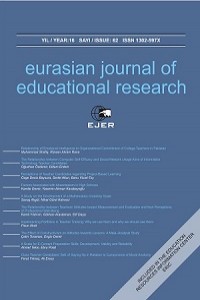Abstract
Problem statement: Teaching not only involves the transmission of information/knowledge from teachers to students, but it is a job which involves multidimensional human interaction to achieve the desired goals of an educational organization. The education sector has become very diverse and demanding. Professional liabilities of teachers in Pakistan have increased day by day. These liabilities have made the work environment more difficult to adjust to, resulting into low organizational commitment in teachers. Interaction with colleagues, students and work-family pressure are all increasing the emotional labour of the teachers, and many of them are unable to strike a balance between job demands, relationships at school and family liabilities. When teachers lack commitment to their jobs, they tend to get lousy results. When they are clear about what they want and commit themselves to achieve it, they usually get there in some fashion. The organizational commitment of teachers is a significant area to be investigated in relation to emotional intelligence in the Pakistani scenario where most of the teachers do not join the teaching profession as their primary choice, but rather as a last resort. The low level of teacher commitment to their organization has resulted in a poor sense of responsibility and poor standards for education.
Purpose of the study: The aim of this study was to investigate the relationship between emotional intelligence and organizational commitment of college teachers in the Pakistani context. Method: The study was a descriptive survey in nature. Data were collected from 494
college teachers in Pakistan. Schutte’s Assessing Emotions Scale and Allen & Mayer’s three components of organizational commitment measures were used to collect the data. Pearson Product Moment Formula was applied to test the hypotheses. Regression Analysis was also applied to determine the effect of emotional intelligence on organizational commitment.
Results and Findings: Findings of the research revealed a significant relationship of emotional intelligence to organizational commitment. EI also displayed significant positive relationships with three components of organizational commitment which are denoted by affective, continuance and normative commitment, respectively. Emotional intelligence reflects a reasonable power of predictability toward the organizational commitment of teachers.
Conclusions and Recommendation: The study recommended emotional intelligence be included in the criteria for selection and recruitment of teachers, and that it be utilized as an intervention to enhance the level of organizational commitment of prospective and in-service teachers in Pakistani colleges.
Details
| Journal Section | Articles |
|---|---|
| Authors | |
| Publication Date | February 15, 2016 |
| Published in Issue | Year 2016 Volume: 16 Issue: 62 |


